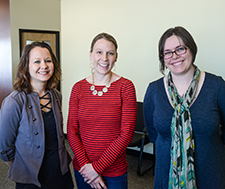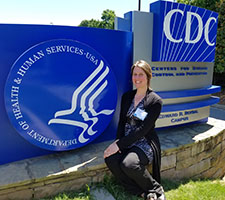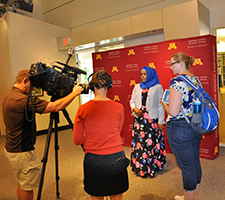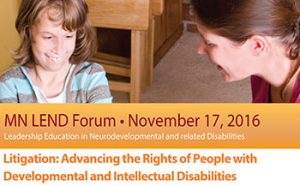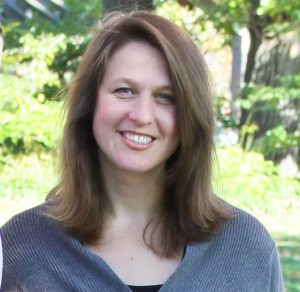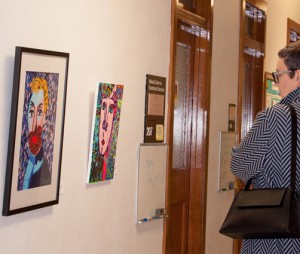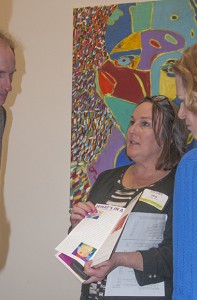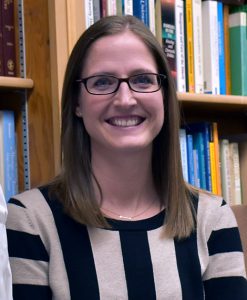
Lindsey Weiler, an assistant professor in Family Social Science, is part of a team receiving a 2018 Community Health Collaborative Pilot Grant of $50,000.
She and her collaborators – Rebekah Hudock, Dept. of Pediatrics, and Emily Goldberg from the Autism Society of Minnesota – were awarded the grant from the Office of Community Engagement to Advance Research and Community Health (CEARCH).
These grants support community-University pilot research projects that address pressing health issues that communities have identified.
Weiler, Hudock, and Goldberg are collaborating on the project, “Evaluation of a Community Mentorship Program for Individuals with Autism Spectrum Disorder (ASD).”
Their project proposal outlined how they will evaluate feasibility and initial outcomes of the Autism Mentorship Program (AMP), a mentoring program that pairs adults and adolescents with ASD in 1:1 mentoring relationships. The program is a community-university partnership targeting the quality of life, socio-emotional health, self-esteem, and social connectedness of adolescents and adults with ASD.
“Youth with ASD rarely experience critical relationships with caring adults who also have ASD,” says Weiler. “What’s most exciting about this project is its potential to change the status quo. The Autism Mentorship Project is an innovative approach to autism service and support that has never been tried in Minnesota, nor has a similar model been found elsewhere. Drawing on the wisdom of parents of children with ASD and adults with ASD has been critical to designing an accessible and promising intervention.”
More about CEARCH Pilot Grants
According to the CTSI website, “Awards are designed to stimulate high-impact research that ultimately leads to health improvements, while building and sustaining long-term partnerships between University of Minnesota researchers and community representatives, including nonprofits, healthcare providers, and community advocates.”
More about Lindsey Weiler
“An ounce of prevention” – Dr. Weiler is among professors interviewed for a story on prevention science in CEHD Connect magazine.
“Weiler honored with national award” – Weiler is recognized by the Engagement Scholarship Consortium.

